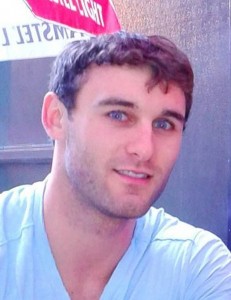Garrett Gillin is a master’s in business administration student and president of Drexel’s Entrepreneurship Association for Graduates & Alumni.
The Triangle: What is Drexel’s Entrepreneurship Association for Graduates & Alumni?
Garrett Gillin: Drexel’s Entrepreneurship Association for Graduates & Alumni is pretty much an extension of the undergraduate Drexel Entrepreneurial Association, which specifically deals with grad students and alumni of the University. It started about two years ago, but they weren’t doing much with it, so a year ago, I took it over with another MBA student. We took it from a name and no members to an organization that gets about 100 people at each event. We collaborate with people from other schools and groups to promote entrepreneurship.

TT: What role do you play in DEAGA?
GG: I am the president currently, and I guess could be called the founder. Somebody made the name, but the organization wasn’t actually alive until we founded it.
TT: Do you typically generate the ideas, or do you work as a team?
GG: I am an MBA [student] and an entrepreneur, and I saw the opportunity to help everybody and promote entrepreneurship at the University. I pretty much set the goals, which are in line with the goals of President [John A.] Fry and the goals of the School of Entrepreneurship here. Our main goal is to promote the culture of entrepreneurship, whereas the University provides resources for entrepreneurs but it doesn’t necessarily create a culture. I think that’s something only students can do, or it’s at least easier for us to do that. Our goals are oriented toward helping students connect with other entrepreneurs, just talk about ideas, and get help with finding co-founders. We are more of a resource and a networking hub.
TT: What interested you in DEAGA, and how did you get involved?
GG: There was a general meeting that me and a couple of other MBA students went to. It was just a call for entrepreneurs in this club, and the meeting happened in the first couple of weeks of me being an MBA. The person running it at the time said we would meet up soon just to talk about what we can be, but nothing happened for three to four months. In the meantime, we wanted to network with entrepreneurs, so we approached the people in charge — the faculty members — and asked them if we could take it over.
TT: If people have a business idea or want to join DEAGA, what should they do?
GG: Anyone looking to join DEAGA can just contact me (garrett.gillin@gmail.com) or any member of our organization. They can also just come to any of our events, which are advertised on the Drexel Events Calendar. Also, we send out a newsletter to anyone on our mailing list, so if you email us (info@startupdrexel.com), you can get on that. If anyone has a business plan and they want to discuss it, there are various resources available on campus, and I am definitely one of them. Anyone is free to contact me at any time to point them in the right direction. Besides that, they can just walk in to the Baiada Institute [for Entrepreneurship] and talk with anyone there.
TT: What was your first entrepreneurial endeavor? How did you come up with the business idea, and how did you implement it?
GG: My undergraduate degree was actually in biotech; major in biology and minor in chemistry. I always wanted to do business, but I was interested in the biotech industries or pharmaceuticals. I [discovered] I like entrepreneurship better, and a good friend of mine who is the owner of bidStart, which is like eBay for collectibles, wanted to branch out and do something else. I came up with this idea for a discount restaurant website. We had this idea to have time-sensitive deals to drive traffic during offbeat hours. We did that for about two years, and our whole goal was to be acquired, and that didn’t happen. Sometimes you have to cut your losses, and that is when I decided to go to grad school, extend my education and also pursue other entrepreneurial endeavors.
TT: What’s the secret, in your opinion, to becoming a successful entrepreneur?
GG: Two things. One: Everyone thinks they are going to be rich overnight, but the truth is it’s hard work. We work 16-hour days, six or seven days a week, so hard work is definitely one. Two: Surround yourself with the right people. Everyone says invest in the team, not the idea, so getting the right people on board and getting people who are going to work a lot to accomplish it is probably the main thing.
TT: Are there any current entrepreneurial ideas you are working on?
GG: Yes. Right when I started the MBA program, I was doing freelance marketing, and that spawned into its own marketing company called 215 Marketing. That’s what my main focus is right now. It is me, three other partners, three interns and eight employees. It’s going full speed and going really well. Besides that, I was also in the Drexel business plan competition for a skin care product we are launching called Noleuderm. It’s an all-natural treatment for hypopigmentation — it basically brings back lost skin color.
TT: Where do you hope to see yourself in 10 years?
GG: Definitely involved in the community, helping entrepreneurs and still with the school. I really like what Drexel is doing. I will probably be heavily involved with one or two of my own companies and probably somehow giving back to the entrepreneurship community.
Triangle Talks is a weekly column that highlights members of the Drexel community.

